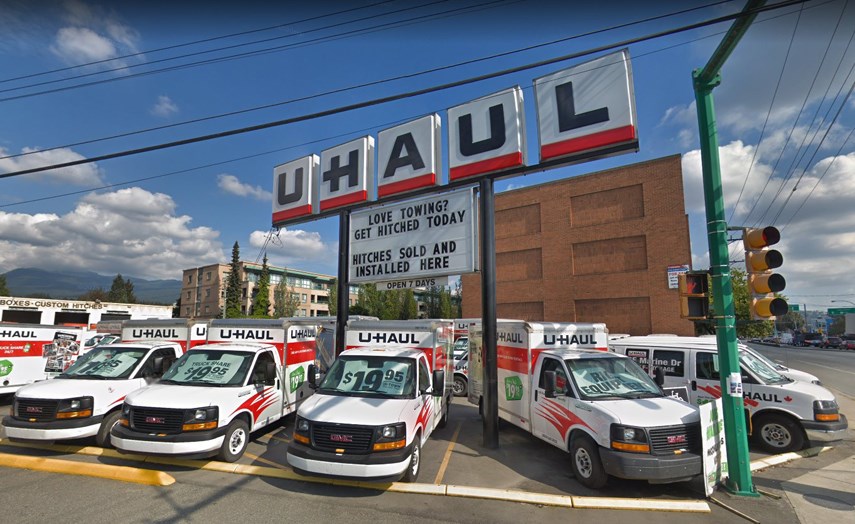British Columbia was the number one place to move to in Canada in 2020, according to data released by U-Haul analyzing internal migration patterns across the country.
The data, ranked by the net gain of one-way U-Haul moving vans, includes a compilation of more than two million trips across Canada and the U.S.
“While U-Haul migration trends do not correlate directly to population or economic growth, the company's growth data is an effective gauge of how well cities are attracting and maintaining residents,” said U-Haul spokesperson Jeff Lockridge in a press release.
B.C. destinations with the highest spikes in net-incoming traffic included North Vancouver, which ranked second across the country, and Vancouver, which came in seventh.
U-Haul’s migration data registers the destinations of do-it-yourself movers based on where they drop off their vehicle, and Lockridge clarified to the Tri-City News that someone ending their trip at the company’s large 1070 Southeast Marine Dr. facility “doesn’t mean they’re not going to a suburb of Vancouver.”
In Coquitlam, incoming and outgoing U-Haul traffic was split 50-50, which marks a 1% bump in arrivals and a 6% decline in departures over 2019.
Next door in Port Coquitlam, 52.9% of all one-way U-Haul traffic came from arrivals. Overall U-Haul traffic dipped significantly in the city, with traffic from arrivals and departures each dropping 20%.
TOP GROWTH CITIES
Across Canada, the city of North Bay, Ont. — with a population of 53,000 residents — topped all other one-way destinations in net inbound traffic, registering a 20% uptick in 2020.
"People are packing up their U-Haul trucks and setting their sights on North Bay," said Wayne Curtis, U-Haul’s central Ontario president, in a statement. "The cost of living is low, and the Ottawa government is sending jobs in this direction. It's no surprise North Bay is the No. 1 U-Haul growth city in Canada."
Other major spikes in incoming U-Haul traffic were reported in Nanaimo/Coombs (52%), Chilliwack (32%), Abbotsford (26%) and Vancouver (16%).
Overall, B.C. saw 3.3% increase in arrivals in 2020, whereas departures rose 2.6%. Only New Brunswick matched the number of net arrivals in B.C., bouncing back from a net loss in 2019 to register 22.7% more arrivals year-over-year.
B.C. EMERGES AS DESTINATION AMID STAGNANT GROWTH
B.C.’s popularity among do-it-yourself movers is echoed by latest population data released by Statistics Canada.
From July to September, inter-provincial migration sunk 21% compared to the same period in 2019.
Over that same period, Canada’s population growth slowed to near zero per cent growth, creeping up by only 2,767 people in the slowest quarterly growth rate since the end of the Second World War.
The culprit? COVID-19, said Statistics Canada last month, which in its latest tally said population growth has "essentially stopped," estimating there were 38,008,005 people from coast to coast to coast as of Oct. 1, 2020.
The biggest population declines came from fallout due to international travel restrictions meant to curb the transmission of the coronavirus.
Despite posting the highest net population gain (4,742 more people) from inter-provincial migration, British Columbia posted the largest declines over the three months, down 1,861 people between July and October.


